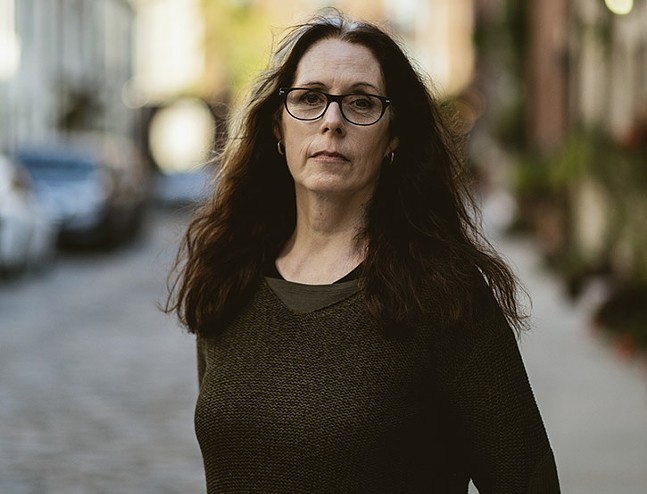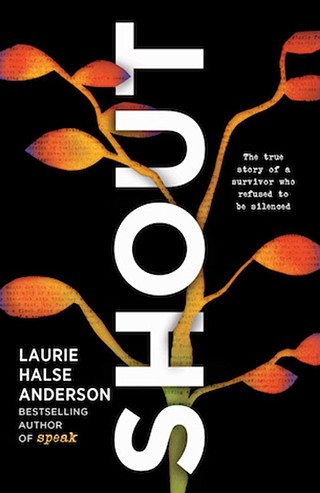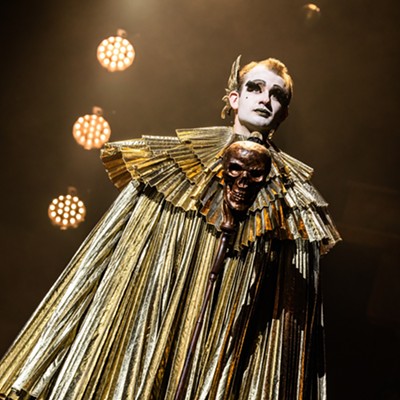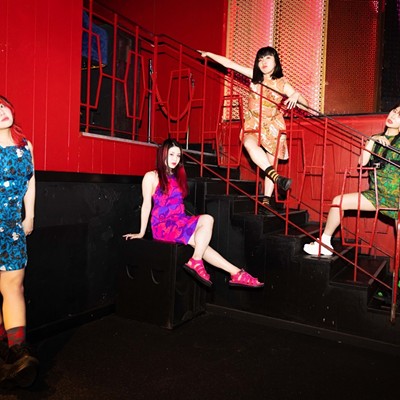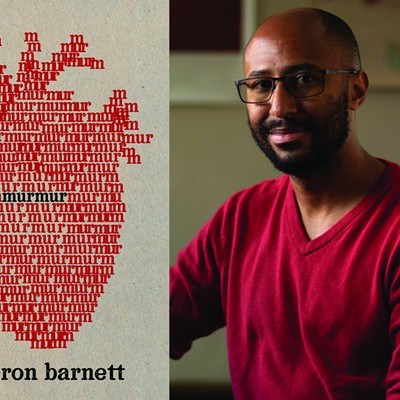Laurie Halse Anderson discusses her "stunning, heartbreaking" memoir of surviving sexual assault
Laurie Halse Anderson’s Shout (Penguin) is not a typical young adult novel. A memoir composed of a series of poems, it’s a stunning, heartbreaking, and ultimately affirming story that recounts the author’s experiences as a victim of sexual assault.
The assault happened while Anderson was 13. The passing of time has gradually revealed fragments of her memories.
“Memory is so fascinating, and story is largely memory ...” Anderson says. “And what’s interesting is when something occurs in the moment, in the time, it’s difficult to understand what the most significant parts are. It’s almost like time lends us a little bit of grace to see not only what was happening in the event, but to also see the connections between things.”
Anderson will be a virtual guest of Pittsburgh Arts & Lectures Words & Pictures series on Thu., Jan. 28.
Shout was published more than 20 years after Anderson wrote Speak, a groundbreaking YA novel about a teenage girl — alone and isolated because of an incident at a party — who stops talking. Written because Anderson was frustrated with backlash against the #MeToo movement, the memoir was produced after she wrote more than 400 poems “in ever expanding spirals,” Anderson says.
Initially, the memoir lacked an essential touchstone. An editor noted that there were no poems about Anderson’s life immediately after she was sexually assaulted.
“My editor pointed out that a lot of my readers were going to want to know what high school felt like to me after that,” Anderson says, who then started listening to music from that era, including the Doobie Brothers, the Eagles, and Blue Oyster Cult, and songs that had become uncomfortable because of their associations to her experiences.
“The thing about the music of anyone’s teenage years is that’s when your brain is in that tremendous accelerated growth,” she says, “and all the feelings are even more magnified, the music is imprinted deeply on our souls. The music helped me find the right words for the poems.”
The first poem, “in the name of love” starts with this opening stanza based on an incident from the life of Anderson’s father:
When he was eighteen years old, my father / saw his buddy’s head sliced into two pieces / sawn just above the eyebrows by an exploding / brake drum, while he was in the middle / of telling a joke.
That visceral image will grab the attention of any reader, but especially attract curious young readers who may react in different ways to the sensationalism of a head being halved.
“I think that’s part of the way human beings unfold, especially in cultures where there’s the luxury of adolescence,” Anderson says, “where you’re not sent out to work at age 12, as an adult. And you know that the world is actually a pretty brutal place. I think a lot of kids are skirting in and out a connection with that brutality, and for some kids, sadly, they’re living with it at home. For some kids it comes as a shock that people are horrible to each other. Other kids don’t have that kind of privilege.”
Laurie Halse Anderson at Pittsburgh Arts & Lectures’ Words & Pictures. 7 p.m. Free. Virtual reading available for one week. pittsburghlectures.org
The assault happened while Anderson was 13. The passing of time has gradually revealed fragments of her memories.
“Memory is so fascinating, and story is largely memory ...” Anderson says. “And what’s interesting is when something occurs in the moment, in the time, it’s difficult to understand what the most significant parts are. It’s almost like time lends us a little bit of grace to see not only what was happening in the event, but to also see the connections between things.”
Anderson will be a virtual guest of Pittsburgh Arts & Lectures Words & Pictures series on Thu., Jan. 28.
Shout was published more than 20 years after Anderson wrote Speak, a groundbreaking YA novel about a teenage girl — alone and isolated because of an incident at a party — who stops talking. Written because Anderson was frustrated with backlash against the #MeToo movement, the memoir was produced after she wrote more than 400 poems “in ever expanding spirals,” Anderson says.
Initially, the memoir lacked an essential touchstone. An editor noted that there were no poems about Anderson’s life immediately after she was sexually assaulted.
“My editor pointed out that a lot of my readers were going to want to know what high school felt like to me after that,” Anderson says, who then started listening to music from that era, including the Doobie Brothers, the Eagles, and Blue Oyster Cult, and songs that had become uncomfortable because of their associations to her experiences.
“The thing about the music of anyone’s teenage years is that’s when your brain is in that tremendous accelerated growth,” she says, “and all the feelings are even more magnified, the music is imprinted deeply on our souls. The music helped me find the right words for the poems.”
The first poem, “in the name of love” starts with this opening stanza based on an incident from the life of Anderson’s father:
When he was eighteen years old, my father / saw his buddy’s head sliced into two pieces / sawn just above the eyebrows by an exploding / brake drum, while he was in the middle / of telling a joke.
That visceral image will grab the attention of any reader, but especially attract curious young readers who may react in different ways to the sensationalism of a head being halved.
“I think that’s part of the way human beings unfold, especially in cultures where there’s the luxury of adolescence,” Anderson says, “where you’re not sent out to work at age 12, as an adult. And you know that the world is actually a pretty brutal place. I think a lot of kids are skirting in and out a connection with that brutality, and for some kids, sadly, they’re living with it at home. For some kids it comes as a shock that people are horrible to each other. Other kids don’t have that kind of privilege.”
Laurie Halse Anderson at Pittsburgh Arts & Lectures’ Words & Pictures. 7 p.m. Free. Virtual reading available for one week. pittsburghlectures.org

